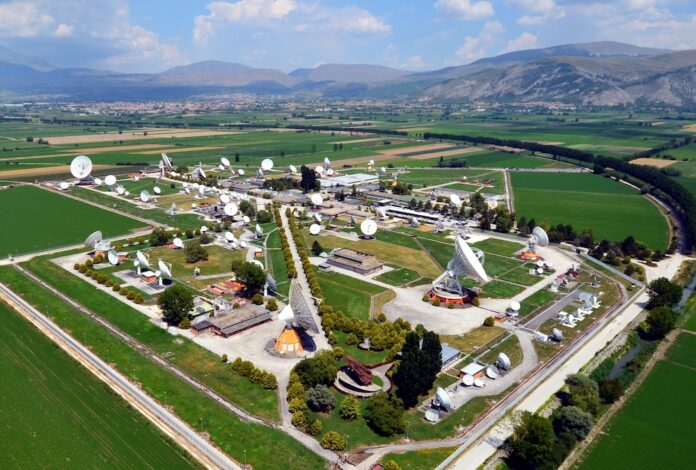The Italian wholesale operator upgrades its PoP at the Fucino Space Centre, which will host the main control site for the EU’s proposed low-orbit IRIS² constellation
Sparkle is upgrading and expanding its point of presence (PoP) at the Fucino Space Centre, close to the town of l’Aquila and one of the world’s largest space centres for civilian use. The centre will also host the main control site for the low Earth orbit IRIS² constellation, an array of up to 170 satellites that will provide secure communications for European Union governments and open new commercial broadband services to under-served areas between 2025 and 2027.
The upgrade marks a new milestone for partners Sparkle and Telespazio – the joint venture between Leonardo (67%) and Thales (33%) – which is one of the world’s biggest suppliers of satellite solutions and services. The Fucino Space Centre – active since 1963 and recognised as the world’s first and most important teleport for civil use – is specialized in satellite orbit control, telecommunications, television and multimedia services.
By expanding its PoP, Sparkle now guarantees additional resilience and scalability with a connectivity capacity of over 400 Gbps, allowing Telespazio to enhance its portfolio – for space, government and industrial applications as well as for the media and telecommunications sectors – with integrated solutions that combine satellite services and advanced terrestrial infrastructure.
The collaboration between the two companies is also operational at Telespazio’s Scanzano Space Centre, which is connected via a fibre optic ring to Sparkle’s Sicily Hub in Palermo, a neutral data centre.
The Fucino Space Centre already manages the European satellite positioning and navigation system Galileo. The other two IRIS² facilities are in Toulouse, France, and in Luxembourg. Sparkle’s decision to upgrade comes with a backdrop of increasing pressure from the Italian government to increase Italy’s role in the sovereign satellite system.
Last month, the president of the Italian Space Agency (ASI) said described the constellation as a “top priority” for Europe and the Italian government had been voicing concerns around whether SES, Eutelsat and Hispasat will be able to match their promises to fund 40 percent of IRIS².
The EC awarded a €10.6bn contract for delivery of the project to the SpaceRISE consortium in December 2024, of which €6bn has been contributed by the EU, €550m by the European Space Agency, and €4bn or so to come from the private sector – including the three operators. That said, Deutsche Telekom’s backing and engagement has most likely changed the sums around in favour of success. Some of Europe’s largest companies are also backing IRIS2 now.




